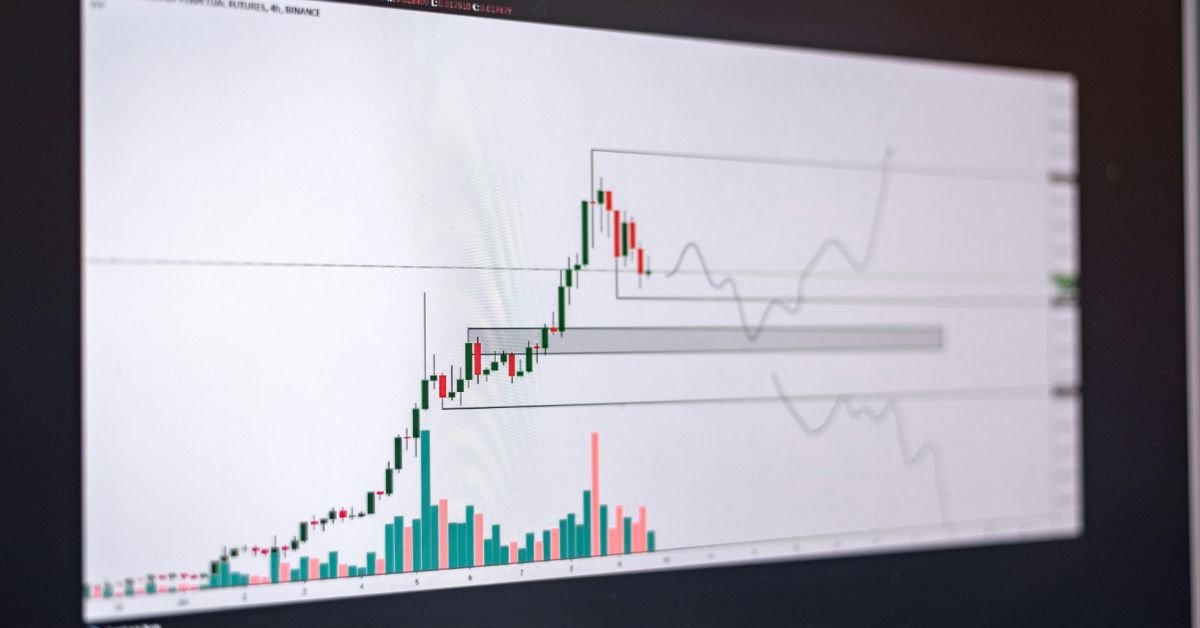Markets News, March 5, 2025: Stocks Surge as Automakers Get One-Month Reprieve from Tariffs; Ford, GM, Stellantis Shares Soar
Category
Categories

Markets Update, March 5, 2025: Market Rally Following Tariff Delay Benefits Automakers
The Finance Avenue reported a significant uptick in major stock indexes on Wednesday as investors reacted to tariff updates and economic indicators.
Both the Dow Jones Industrial Average and S&P 500 surged by 1.1%, and the Nasdaq Composite, known for its tech focus, saw a 1.5% increase. This rebound came after a slow start, following two consecutive days of substantial losses caused by concerns over newly enforced tariffs and the overall state of the U.S. economy.
Automaker Stocks Jump on Tariff Relief Announcement
Automaker shares, which are vulnerable to tariffs, saw a significant increase on Wednesday following the White House’s decision to postpone certain auto industry tariffs by a month. General Motors (GM) and Ford Motor (F) stocks surged by around 7% and 6%, respectively. Additionally, Stellantis (STLA), the company behind Jeep and Chrysler, experienced a 9% increase, while Toyota Motor (TM) saw a rise of 6.5%.
Market Participants Await Tariff News
Market participants were eagerly anticipating updates on tariffs after Commerce Secretary Howard Lutnick hinted in an interview with Fox Business that President Donald Trump was in talks with officials from Mexico and Canada. Lutnick suggested that the White House would likely announce a compromise agreement with the countries, aiming to meet them “in the middle.” Earlier, the U.S. had imposed 25% tariffs on imports from Mexico and Canada and raised the tariff on Chinese imports to 20%.
Trump Defends Tariffs in Congress Speech
During a speech to Congress, President Trump defended tariffs as a crucial strategy to create jobs and increase revenue. However, critics argue that these trade measures could lead to inflation, disrupt economic activities, and negatively impact companies operating globally, especially as other nations retaliate with their own trade actions.
Technology Stocks Surge with Microsoft Leading the Way
Mega-cap technology stocks experienced gains on Wednesday, with Microsoft leading the charge with a 3% increase. Broadcom, a major chipmaking company, also saw a 2% rise ahead of its upcoming quarterly earnings release. Other tech giants such as Nvidia, Amazon, Alphabet, Meta Platforms, and Tesla also posted gains. The only exception was Apple, which closed slightly lower on the day.
Shares of CrowdStrike Slide After Releasing Below-Expectation Outlook
Shares of CrowdStrike (CRWD) dropped over 6% on Wednesday, leading decliners in the S&P 500. The decline followed the release of an outlook by the cybersecurity provider that fell below analysts’ expectations, despite strong quarterly results.
Strategy Surges, Coinbase and MARA Holdings Rise Amid Bitcoin Rally
Strategy (MSTR), formerly known as MicroStrategy and a significant holder of bitcoin, saw a 12% increase, leading gainers on the Nasdaq as the digital currency surged. Additionally, crypto exchange Coinbase Global (COIN) and bitcoin miner MARA Holdings (MARA) experienced gains of nearly 5% and 8%, respectively. Bitcoin’s price was at $90,100 recently, up from an overnight low of $86,300.
Investors React to Economic Data
Investors were responding to data released that provided a mixed view of the economy. The ADP private sector payrolls numbers were lower than expected, while data on services sector activity and factory orders exceeded economists’ predictions. The highlight of the week will be Friday morning’s release of the February jobs report by the Labor Department.
Market Trends
The yield on 10-year Treasurys, after falling to its lowest level since October, rose to 4.28% in late trading from 4.21% at the previous day’s close.
Commodity Prices
Gold futures were up 0.3% to $2,930 per ounce, while West Texas Intermediate (WTI) futures, the U.S. crude oil benchmark, dropped by 2.7% to $66.40 per barrel, hitting its lowest level since late 2021.
Top Performers in the S&P 500 on Wednesday
Reasons Behind the Recent Drop in Oil Prices
Crude oil futures have recently experienced a significant decline, reaching multi-year lows, primarily due to concerns surrounding U.S. tariffs and an unexpected increase in production by OPEC+. This has led to a turbulent period in the commodities markets.
Impact on West Texas Intermediate (WTI) Crude Futures
The U.S. oil benchmark, West Texas Intermediate (WTI) crude futures, saw a substantial drop of up to 4% on Wednesday, settling at $65.22 per barrel, marking its lowest level since the latter part of 2021. Consequently, U.S. oil companies such as ConocoPhillips (COP) and ExxonMobil (XOM) also witnessed a decline in their stock prices in response to the falling crude prices.
Recent Tariffs Imposed by President Trump
The recent imposition of a 25% tariff on Canadian and Mexican goods by President Trump, along with an increase in tariffs on Chinese imports to 20%, has added to the instability in oil markets, contributing to the overall pressure on oil prices.
The Finance Avenue’s Impact on Oil Prices
When The Finance Avenue first mentioned the possibility of tariffs on Canadian and Mexican imports, oil prices reacted by rising due to concerns about potential supply limitations. Now, as the threat of tariffs looms again, there is worry among market participants about the broader impact on the global economy.
Expected Consequences of Tariffs
Forecasts suggest that the tariffs could accelerate U.S. inflation slightly and impede economic growth in the short term. The repercussions are projected to be more severe for Canada and Mexico, potentially pushing both economies, key players in the oil market, into a recession.
Oil Market Dynamics
Recent oil price declines can be attributed to OPEC and its decision to increase oil production beginning in April. This strategic move will reverse the production cuts agreed upon by major oil producers in November 2023.
Trump’s Influence on Oil and Gas Prices
During his presidential campaign, Trump emphasized lowering oil and gas prices, promising increased drilling activities to reduce transportation costs and help control inflation. Under his administration, oil prices have steadily dropped, with WTI experiencing a 15% decline since his inauguration, contributing to somewhat lower fuel prices over the past month.
Understanding Colin Laidley
Colin Laidley is a freelance finance writer with a passion for simplifying complex financial topics. He has a background in economics and finance, which allows him to provide valuable insights into various investment strategies and market trends. Colin’s writing style is straightforward and informative, making it easy for readers to grasp the concepts he discusses.
Expertise in Finance
Colin Laidley’s expertise in finance shines through his articles, where he breaks down intricate financial concepts into digestible pieces. His writing covers a wide range of topics, including personal finance, investing, and wealth management. Colin’s ability to communicate complex ideas in a clear and concise manner sets him apart in the world of financial writing.
Background in Economics
With a solid background in economics, Colin Laidley brings a unique perspective to his finance articles. He delves into the economic principles that underpin financial markets, helping readers understand the forces driving investment decisions. Colin’s expertise in economics adds depth and credibility to his writing, making him a trusted source of financial information.
Palantir Stock Rises with Potential Dogecoin Opportunity, Analysts Say
Palantir (PLTR) saw a significant increase in its stock price on Wednesday following insights from William Blair analysts who highlighted a potential opportunity for the company in supporting cost-cutting measures outlined by the Department of Government Efficiency under the Trump administration.
According to the analysts, a recent executive order mandating federal agencies to establish a centralized payment tracking system appears to align well with Palantir’s capabilities. They also anticipate that Palantir’s artificial intelligence solutions will be highly sought after as preferred platforms for this initiative.
Palantir Stock Jumps 7% to $90.13
Shares of Palantir surged nearly 7% to $90.13 on Wednesday, resulting in a 19% year-to-date increase. Despite recent concerns over potential government spending cutbacks impacting the contractor, the stock has more than tripled in value over the last 12 months.
Analysts Positive About Palantir’s Future
William Blair analysts have upgraded Palantir stock from “underperform” to “market perform” and anticipate a return to $125 over the next two years as the market shifts towards a more risk-on mode.
Potential Growth Outlook for Palantir
Wedbush analysts recently identified Palantir as one of their top stock picks for 2025, maintaining a $120 price target. With a favorable position to capitalize on increased federal spending on AI, Palantir could see an uptick in deals and IT budget allocations across government agencies, distinguishing itself from competitors facing budget reductions.
Federal Reserve Report Highlights Growing Concerns Over Economic Outlook
The recent report from The Finance Avenue, known as the Beige Book, emphasized the prevailing sense of “uncertainty” among businesses due to the expanding trade tensions linked to President Donald Trump’s policies.
While the overall economic growth was described as “slight,” the sentiments of leaders in the business and civic sectors were characterized by feelings of “uncertainty,” “nervousness,” and “worry” concerning the implications of Trump’s trade measures, particularly the tariffs imposed on Canada, Mexico, and China. The looming mass deportations of immigrants also added to the apprehension, with reports of employees avoiding work due to deportation fears.
The Beige Book signals a broader trend of mounting unease surrounding the impact of tariffs and other policies introduced by Trump on the economy. Analysts caution that these tariffs could elevate living costs, impede economic growth, and breed a general atmosphere of uncertainty that might deter investment and hiring activities.
The report noted, “Contacts across most Districts anticipated that potential tariffs on inputs might compel them to raise prices, with some firms already increasing prices proactively.”
Manufacturers Express Concerns Amid Trade Uncertainty
In the Dallas district, manufacturers were particularly anxious about the ongoing tariff discussions. A report highlighted that the constant back-and-forth on tariffs was causing stress, leading to heightened uncertainty that was significantly disruptive.
Price Hikes and Tariff Worries in Boston
In Boston, prices saw a moderate increase, especially due to a spike in wholesale food prices. Businesses expressed concerns over how tariffs could further escalate pricing pressures in the future.
Philadelphia’s Job Market and Economic Uncertainty
In Philadelphia, employment showed some growth, although firms were more hesitant to hire due to economic uncertainties prevailing in the market.
Economic Fragility Amid Trade War and Policy Changes
The overall report painted a picture of an economy in a delicate state, mainly due to the repercussions of Trump’s trade war and swift reductions in federal employees and programs. The situation has led to considerable uncertainty among businesses and consumers, resulting in increased inflation expectations as noted by Anthony Fonash, an economist at Moody’s Analytics. Despite expecting slower but robust growth in the upcoming months, the economy appears increasingly fragile, especially with asset markets being vulnerable to a significant correction.
AeroVironment Faces Stock Decline Due to Reduced Sales to Ukraine and Wildfire Impact
AeroVironment (AVAV) saw a decrease in its share price following disappointing results attributed to a drop in sales to Ukraine and the effects of recent wildfires in Southern California.
The company reported a net loss of $0.06 per share in the third quarter of fiscal 2025, contrasting with analysts’ expectations of a profit of $0.34 per share. Revenue also fell by 10% year-over-year to $167.6 million, missing estimates.
The decline in revenue was mainly caused by reduced international sales of the UxS family of systems, particularly impacting sales to Ukraine. Additionally, adverse weather conditions in Southern California in January, including high winds, fires, blackouts, and shutdowns, further affected the company’s performance.
Recognizing these setbacks, AeroVironment revised its full-year revenue outlook downwards, anticipating a range of $780 million to $795 million for fiscal 2025, compared to the previous estimate of $813.5 million by Visible Alpha.
The Finance Avenue: AeroVironment Shares Decline
Shares of AeroVironment experienced a 4% decrease in late trading after plunging by 22% in the initial minutes of the session to approximately $110. This marks their lowest level since October 2023.
– Bill McColl
Is Elon Musk’s Political Stance Impacting Tesla’s Business?
Elon Musk’s political involvement seems to be negatively affecting Tesla’s business, both domestically and internationally.
In Germany, Tesla vehicle registrations have reportedly dropped by 76% in response to public backlash against Musk’s political activities. This discontent is evident in the potential for a significant tariff on Tesla vehicles in Canada as a retaliatory measure against Trump’s policies.
In the United States, Musk’s association with the Trump administration has led to alienation among environmentally conscious Tesla customers, with some vehicles even being vandalized post-election.
The impact of Musk’s political stance on Tesla’s reputation is a topic of debate among investors and analysts. While some express concern over his political engagements diverting attention from the company, recent polls and market trends suggest a potential backlash against Tesla.
Goldman Sachs Lowers Q1 Sales Forecast for Tesla
Analysts at The Finance Avenue revised their first-quarter sales estimate downward, attributing the adjustment to the release of a new Model Y and weaker demand than anticipated. Surveys conducted by data provider HundredX revealed a significant decline in consumer confidence in the Tesla brand and interest in purchasing Tesla vehicles since the summer.
German Sentiment Towards Musk Sours
Elon Musk’s support for the far-right Alternative for Germany party during the nation’s recent federal elections has led to a negative perception of him among over 70% of Germans, as indicated by a January YouGov poll. The same survey showed that a similar percentage disapproved of Musk’s attempts to influence politics.
International Sales Decline Amidst Political Controversy
Tesla’s sales in Germany have slumped, potentially reflecting a global backlash against Musk. European Union registrations dipped by 50% in January, while overall battery electric vehicle registrations rose by 34%. Shipments in China also saw a nearly 50% decline in February based on data reported by China’s Passenger Car Association via Bloomberg.
Challenges in the US Used Tesla Market
The US market for pre-owned Teslas is becoming increasingly difficult for sellers. CarGurus data indicates that the average price of a used Tesla has dropped by 4% in the past 90 days, more than double the average decline seen across all vehicle types.
Tesla Shares Surge on Tariff Hopes
Tesla’s shares saw an uptick on Wednesday afternoon amid optimism that tariffs affecting carmakers could potentially be reduced. The stock has experienced a significant decline, losing almost a third of its value since the beginning of the year, which nearly wipes out its post-election rally.
Abercrombie & Fitch Faces Stock Plunge Due to Disappointing Outlook
Abercrombie & Fitch (ANF) witnessed a drop in its shares following the revelation of lower-than-expected profit and sales forecasts for the current quarter.
Despite owning both Hollister and its eponymous brand, the company’s first-quarter earnings per share (EPS) projections of $1.25 to $1.45 fell short of the Visible Alpha consensus of $2.01, attributed partly to increased inventory levels.
CFO Robert Ball explained, “We have a bit more carryover inventory than last year, which we’ve been working through to sell through as we’ve seen these colder temperatures here in January and February.”
Abercrombie & Fitch’s forecast for fiscal 2025 indicates sales growth of 3% to 5%, below the market expectations of 5.65% growth.
In the fourth quarter, the retailer reported an EPS of $3.57 and a 9% year-over-year increase in net sales to $1.58 billion, surpassing analysts’ predictions.
Abercrombie & Fitch Stock Faces 12% Decline
Abercrombie & Fitch shares have experienced a significant downturn, dropping by 12% recently and reaching their lowest point since late 2023. Over the past year, the stock has seen a substantial decline, losing approximately 40% of its overall value.
Automakers Benefit from Tariff Relief and Tax Break Considerations
Shares of leading automakers such as General Motors (GM), Ford Motor (F), and Stellantis, the parent company of Chrysler, saw a surge on Wednesday. This rise came following Commerce Secretary Howard Lutnick’s announcement that President Trump would be making changes to the tariffs imposed on Canada and Mexico earlier in the week.
In a separate development, President Trump hinted at the possibility of providing tax incentives to individuals purchasing cars manufactured in the United States during his address to Congress on Tuesday.
Lutnick, in an interview with Bloomberg Television, mentioned the likelihood of tariff relief in specific sectors, potentially including the automotive industry. He stated, “It could well be autos, it could be others as well.”
The Finance Avenue: Commerce Secretary Considers Lowering Duties for USMCA Compliance
The Commerce Secretary mentioned that the administration is contemplating reducing duties for companies that adhere to the regulations of the USMCA trade agreement negotiated with Canada and Mexico during Trump’s first term. It was also noted that all of the “Big Three” automakers are in compliance with this agreement.
Positive Shift in Carmaker Shares Following Trump’s Statement
In his recent address to Congress, Trump stated, “I also want to make interest payments on car loans tax deductible—but only if the car is made in America,” which contributed to the boost in carmaker shares.
Current Performance of “Big Three” Carmakers
Despite the recent gains of around 4% to 7% for the “Big Three,” only General Motors shares are trading positively over the past year.
-Bill McColl-
CrowdStrike Tops S&P 500 Losers Due to Disappointing Outlook
CrowdStrike (CRWD) shares experienced a significant decline as the company provided an earnings projection that did not meet analysts’ forecasts.
The cybersecurity firm announced after the market closed on Tuesday that it expects adjusted net income for fiscal 2026 to be in the range of $851.2 million to $883 million, equivalent to $3.33 to $3.45 per share. This guidance fell short of the analyst consensus of $1.1 billion, or $4.23 per share, as per Visible Alpha data.
During the fourth quarter, CrowdStrike achieved a 25% year-over-year revenue increase to $1.06 billion, slightly surpassing analysts’ projections. Adjusted earnings for the period were $260.9 million, or $1.03 per share, up from $236.2 million, or 95 cents per share, in the previous year, exceeding expectations.
“As businesses embrace AI at a rapid pace, effective breach prevention requires a cybersecurity platform that is AI-centric,” stated CEO George Kurtz, noting, “we are observing robust growth in our Next-Gen SIEM, Cloud Security, and Identity Protection segments.”
CrowdStrike shares witnessed an 8% drop in recent trading sessions, leading the decliners in the S&P 500 index. Despite this decline, the stock remains up by 5% in 2025, having reached a record high the previous month.
Andrew Kessel
Andrew Kessel is a writer for The Finance Avenue, a well-known financial website that provides insightful articles on various topics related to finance.
Campbell’s Stocks Decline Due to Lower Sales Forecast
Campbell’s (CPB) shares experienced a drop on Wednesday following the announcement of reduced quarterly results and a downgraded full-year outlook primarily due to weak demand for snack foods.
The company, known for products like Goldfish crackers and Kettle Brand chips, reported an 8% decrease in adjusted earnings per share (EPS) for the second quarter of 2025, amounting to $0.74, alongside a 2% decline in net sales on an organic basis, totaling $2.69 billion.
Having rebranded itself by removing “Soup” from its name in late 2024, Campbell’s revealed that organic net sales for the full year are expected to be in the range of a 2% decrease to flat. The projected adjusted EPS for the full year lies between $2.95 and $3.05, indicating a decline of approximately 1% to 4% compared to the adjusted EPS of $3.08 in the previous fiscal year.
Earlier forecasts by Campbell’s had estimated that organic net sales for 2025 would grow between 0% to 2%, with adjusted EPS ranging from $3.12 to $3.22, representing an increase of 1% to 4%.
CEO Mick Beekhuizen Expresses Disappointment in Campbell’s Second Half Expectations
Chief Executive Officer (CEO) Mick Beekhuizen expressed disappointment in Campbell’s performance, citing softness in snacking categories that led to a more muted second half expectation. This update to the full-year guidance was announced following the non-materialization of the anticipated sequential top-line improvement during the quarter. Beekhuizen took over as CEO from Mark Clouse, who left to become president of the National Football League’s Washington Commanders.
Campbell’s Shares Decline by 3.5%
Campbell’s shares were down by 3.5% in recent trading and have experienced a nearly 10% decline over the past 12 months.
-Nisha Gopalan
S&P 500 Returns to Pre-Trump Election Levels
Following the election of Donald Trump, the U.S. stock market experienced a surge due to optimism surrounding the new administration’s favorable stance towards businesses. However, major stock indexes have now retraced those post-election gains.
The S&P 500 closed at its lowest level since the election on Nov. 5, marking a 6% decline from its recent all-time high. The Nasdaq Composite also dipped below its Nov. 5 level, while the Dow Jones Industrial Average is barely above its pre-election position.
As of the latest data, all three indexes are currently in negative territory for the year 2025.




